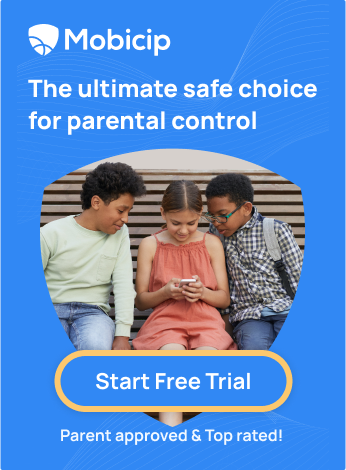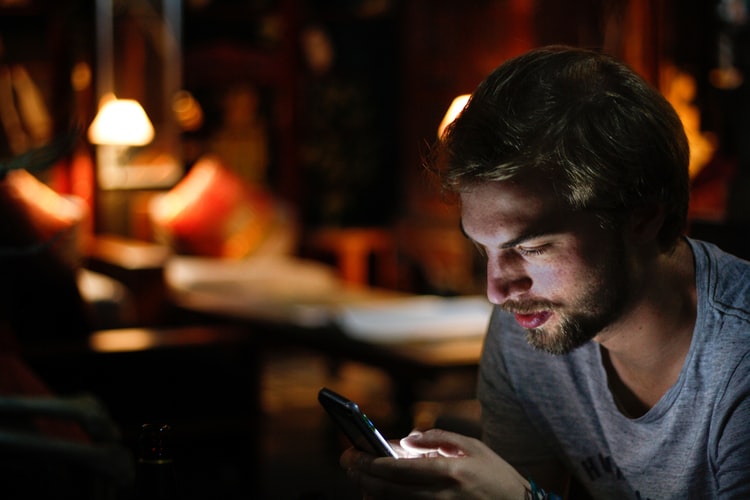Everything Parents Should Know About Children Watching Porn
While the age of digital information is here to stay, and indeed benefits humanity in many ways, its risks to kids and adolescents cannot be stressed enough. One such risk is exposure of kids to age-inappropriate content such as pornography – the elephant in the room that must be tackled before the damage gets out of hand.

Children watching porn
What follows are answers to some common questions - what is the average age for a child’s first exposure to online pornography? How does porn affect young kids? Can kids watch porn? Should kids watch porn? The last two questions have knee-jerk answers – a resounding no. But why? Read on.
Some alarming numbers
Today, one in ten children under the age of ten has been exposed to online pornography, either deliberately, or by a wrong click/mis-spelled search - after all, pornography is a mere two-clicks away from an innocent activity. Here are some alarming numbers that point to the seriousness of the situation.
-
Surveys have shown that only 3% of pornographic websites require proof-of-age, and 25% of the sites do not even include any adult-content warnings. This makes it very easy for a child to stumble into a pornography site by accident. Once exposed, whether accidentally or on purpose, the practice may catch on.
-
A survey by the American Psychology Association reports that the average age for a child’s first exposure to online pornography is 13.37 years of age with the youngest exposure as early as 5.
-
A disturbing finding by Bitdefender is that children under 10 are increasingly visiting porn mega sites such as Pornhub, this age group accounting for one in every ten visitors and 22% of underage visitors to the site.
-
10% of 12 to 13-year-olds believe that they may be addicted to pornography.
Effects of pornographic exposure on children
The answer to the questions “can kids watch porn” and “should kids watch porn” is an obvious “no”. While the loss of innocence is often considered a subjective ill effect of underage pornography exposure, the objective effects are serious.
-
Psychological: The automatic sexual arousal through viewing such sites, without being aware of the biological aspects of it, can induce fear and guilt in the child. Exposure to online sexual content way before a child’s natural transition into adolescence can desensitize them to sex and could potentially induce engagement in dangerous sexual behavior as an adolescent.
-
Physical: Studies have shown that viewing Internet pornography can reduce the amount of gray matter in the brain. For a child whose brain is still under development, exposure and consumption of porn can lead to significant learning problems later on.
-
Social: The desensitization to sex could in turn lead to objectification of human bodies – irrespective of genders – which could adversely affect later relationships. Studies have shown that among heterosexual men, the younger the age of a boy’s exposure to pornography, the more likely is his tendency in later times to wield power over women.
Signs of pornographic exposure in children
The anonymity accessibility and affordability, in addition to the physical isolation of the digital domain makes it hard for a parent or caregiver to know of a child’s exposure to pornography. What are some common signs that indicate that a child could be consuming pornographic material?
-
Unnatural curiosity of the kid about sex and genitals
-
Unusual behaviour such as withdrawal from interactions, sleeplessness or over-sleeping, changes in eating habits, etc.
-
A child being secretive with his/her digital use – switching tabs suddenly in the presence of an adult, taking the device to the bathroom, locking oneself inside a room, etc.
-
Removing parental filters and screen time tracking
-
Overprotectiveness about their devices
-
Increased internet usage, especially at nights
-
Physical outbursts of anger, fear and anxiety, especially after being on a digital device
-
Use of words and language inappropriate and unsuitable for their age
-
Indications of premature sexual activity including masturbation
-
Withdrawal symptoms in the absence of the internet
-
Unexpected popups and inappropriate emails in shared computers
Many of the above symptoms may indicate other problems such as cyberbullying and internet addiction, in addition to pornography and must be tackled in any case.
Preventive measures
Managing your emotions is key to addressing the situation. It's normal for parents to lose their cool when they discover their children watching sexually explicit content. Maintain your patience and do not shame or punish your child. Parents must RESPOND rather than REACT at this crucial time. Once you find out what your kids are up to, first take time to process your own emotions before confronting them. Try to calm down and talk to your spouse or any trusted friend about it, then make a plan on how you would approach the situation. Children feel safe to open up and share their feelings when their parents appear empathetic and understanding.
Some steps that may be taken to protect children from online pornographic content are:
-
Ensuring full parental access to the devices used by the child, especially if the child is below 10 years of age.
-
The use of parental control tools such as Mobicip on devices. These can block inappropriate sources and help parents monitor device use by children.
-
Enabling privacy protection features in social media accounts of children
-
Overseeing the apps installed by children. Some apps may contain aggressive adware and malware. Ensuring that all apps are installed from legitimate sources.
It is important for parents and wards to have an honest and open communication channel. Such communication must include:
-
A frank and possibly scientific discussion about relationships and sex, if the child is old enough to understand it.
-
Educating the child about how to handle spam, instant messages or e-mails with obscene or aggressive content. There are external sources of help available for this.
-
Knowing about the legality of online activities and educating children about the legal and illegal ways of using the internet.
-
A positive approach if the child has been exposed deliberately or accidentally to pornographic content, which does not shame the child but reassures that mistakes happen but we don’t repeat them. It is important to remember that shame may keep kids from seeking the help they need and therefore it is up to the adult to deal with this issue in a mature way that helps the child and not harms her.
-
Help build accountability: Children may often want to move away from watching but just can't resist the urges. This is a great opportunity for parents to help their children develop self-control, which will help them in the long haul. Once your child agrees to have a problem with pornography, invite a trusted adult to encourage and hold him accountable. They can have regular conversations and plan strategies to overcome addiction. Parents can also be accountability partners, but children prefer to speak with someone outside the home for issues like this. Walk alongside your child through this challenge to help them overcome temptations.
Be proactive in protecting
Devices are in every child's hands, making it easier for them to access porn in their homes, schools, friends' homes, or playgrounds. It's impossible to check on them every waking hour. Many times children may accidentally bump into these illicit videos. Start monitoring their online activity if you are a smart and cautious parent. Mobicip is one of the most preferred parental control software. It blocks unsafe websites and scans a child's Instagram, Facebook and Snapchat for harmful content and notifies parents when potentially dangerous or inappropriate activity is detected. You can also restrict access to potentially harmful apps while allowing access to fun and educational apps.
Most importantly, our children learn from how we behave, not what we say.There are strict laws on sending inappropriate pictures or sexting; that should be openly discussed with your children to ensure safety. A home that exudes love, openness and honesty is a natural protection for the child in the seedy underbelly of the internet.
Writing credit: Authored by Lakshmi, a Mobicip mom who researches extensively on digital citizenship and internet safety.
Keep in touch with the latest on parenting, technology, and education. Subscribe to the Mobicip newsletter. Learn more at www.mobicip.com.








